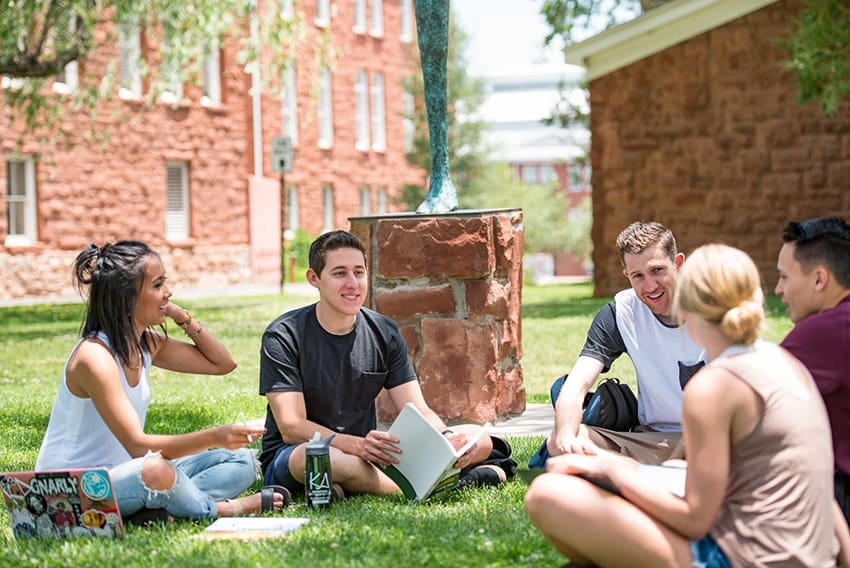
Get stories and expert advice on all things related to college and parenting.

Students are back on campus following a well-deserved winter break. Spring semester will soon be in full swing!
In addition to coursework and extracurricular commitments (and, of course, their social life), there are activities and tasks that are unique to the second semester. This Top 5 should be on your student’s radar:
Your student has already registered for spring courses and will meet with an advisor later in the semester to preregister for fall. That makes NOW the perfect time for a big-picture conversation with their academic or major advisor.
They can evaluate the previous semester(s) and, if they are a couple of years in, do an informal “Academic Audit” (at some schools, a formal Academic Audit will be required). They should confirm that they are on track to graduate with no unpleasant surprises waiting for them senior year (i.e., coming up a few credits short of what's required to graduate).
A meeting with an advisor can also help prepare your student for future course selections and provide a chance to ask questions about their major and electives.
If your student receives financial aid (need-based or merit), they should make an appointment at the financial aid office. Students wishing to apply for or renew financial aid must complete paperwork (due dates vary and may involve completing an online form for the school plus the FAFSA and possibly the CSS).
Any loans for the spring semester will need to be signed, and this is a good time to verify the status of grants and scholarships, especially those with academic requirements. While there, your student should get a list of all loans and take inventory of their college debt.
Does your student hope to study abroad next year? Applications for fall programs are due this spring. There is still time to meet with a study abroad advisor, attend a study abroad fair, and research programs, but your student should not procrastinate. Planning for study abroad requires a lot of work, comparable to taking an extra class.
If your student has already been accepted to a summer or fall program, they can follow this checklist and start completing the required tasks. Waiting until the last minute is not an option! It can take weeks or even months to get an appointment at the consulate to apply for a student visa and more time for the passport and visa to be returned.
Is your student considering studying abroad during the spring semester a year from now? They may think they have all the time in the world, but they do not want to be rushing around like crazy next fall. Encourage them to apply now and enjoy the extra breathing room!
The on-campus housing selection process typically gets rolling in late winter. Many colleges use a lottery or “room draw” system. Students may enter the lottery as an individual or in a group of two or more.
Most freshmen were matched with roommates by the college. After the first year, students usually choose their own roommates. It can be traumatic if your student hasn’t bonded with other students and is forced to enter the draw alone. My daughter was placed in this position after returning from study abroad. It’s important to be informed and flexible during this process and to prepare ahead of time.
Before selection begins, your student should look at residence hall options available to upperclassmen and rank their top choices. Options may include:
Some residence halls will offer single rooms, others suites (multiple bedrooms sharing a common room and bathroom). Before the lottery, each student/group is assigned a random number generated by a computer. The lowest number chooses first, and the others follow. When it’s your student's turn, they will log into the system online and select a room from the ones that are still available.
Is your student contemplating a move off campus next year? Here are some things to consider, plus tips for a safe and successful off-campus housing search: "Housing Decisions For Next Year."
It’s time to polish up that resume and apply for summer jobs, internships, and research opportunities. There are career prep workshops your student can attend (how to write a cover letter and prepare for an interview, for example). Spring job fairs are a great chance to learn what’s out there. If the college has funding available for students accepting unpaid internships or staying on campus to do research, applications will be due this spring.